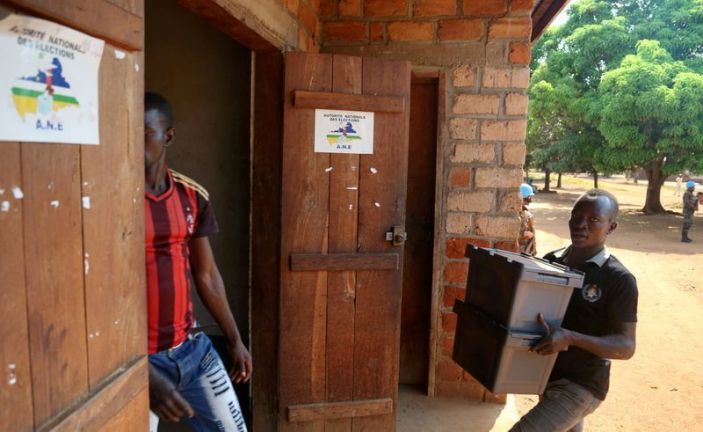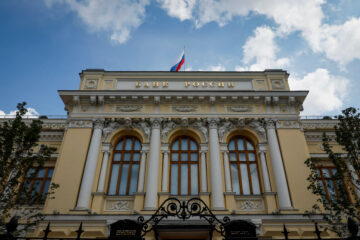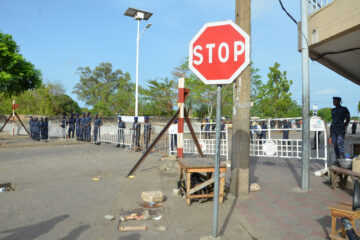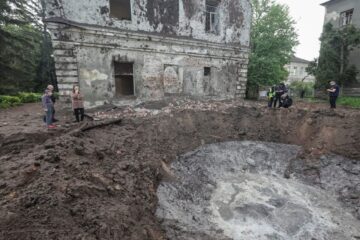Fearing violence, shops shut, people hunker down before Central African vote
 Civilians carry electoral materials from a United Nations Multidimensional Integrated Stabilization Mission in the Central African Republic (MINUSCA) truck, ahead of the upcoming elections in Yongofongo, Central African Republic December 17, 2020. REUTERS/Antonie Rolland
Civilians carry electoral materials from a United Nations Multidimensional Integrated Stabilization Mission in the Central African Republic (MINUSCA) truck, ahead of the upcoming elections in Yongofongo, Central African Republic December 17, 2020. REUTERS/Antonie RollandPanic gripped the streets of Central African Republic’s capital Bangui on Wednesday with businesses closing and people holing up in their homes as the country braced for a general election that has stoked the embers of violence.
Rwanda and Russia have sent military aid to help the government restore calm as security forces and United Nations peacekeepers battle rebels who have occupied towns and roads outside the capital.
Russia, seeking to increase its influence in Africa, is an ally of President Faustin-Archange Touadera, a relationship often seen as a threat to the influence of former colonial power France in the French-speaking country.
After heavy clashes on Tuesday, U.N. peacekeepers pushed back rebels attacking Bambari, a city 380 km (235 miles) northeast of Bangui, a U.N. source and a security source said.
“The attackers were immediately repulsed,” a spokesperson for the peacekeeping force known as MINUSCA said in a statement.
The U.S. Embassy in Bangui reported some violence and an atmosphere of panic in the capital.
A Reuters Witness said motorbike taxis had vanished, thousands of people were vacating the city centre and U.N. peacekeepers had been stationed outside the prime minister’s office.
Ismail Dicky, a man in his late 20s, said he fears political violence ahead of Sunday’s general election, a sentiment reflecting the anxious mood of a country desperate for an end to years of bloody upheaval.
“We are scared of the elections. We want peace. We want security,” Dicky said in Bangassou, a provincial town scarred by a brutal, ethnic mass killing in 2017.
He said the deeply impoverished, landlocked nation could not afford more of the tit-for-tat ethnic and religious violence that has plagued it since 2013.
FIVE COUPS, NUMEROUS REBELLIONS
Central African Republic, rich in diamonds, timber and gold, has been racked by five coups and numerous rebellions since independence from France in 1960.
Slightly larger than France, but with a population of only about five million, it has been gripped by insecurity since the 2013 ousting of then-President Francois Bozize by mainly Muslim Seleka fighters.
Heavy-handed rule and alleged human rights abuses by the Seleka government prompted reprisal killings from Anti-Balaka militias drawn from the Christian minority.
The country has failed to stabilise, despite the signing of several peace deals between warring militias, the election of Touadera in 2015, and the presence of over 12,800 uniformed U.N. peacekeepers.
Touadera, seeking another mandate, is the favourite to win the presidential election in a field of 17 candidates. Electors will also vote for a new parliament.
The latest crisis flared after the country’s top court rejected several candidacies for the election, including that of ex-president Bozize. The government has accused Bozize of plotting a coup with several militia groups, an accusation Bozize’s party has denied.
A number of rebel groups have formed an alliance and are threatening to march on the capital ahead of Sunday’s election.
Some opposition parties have called for voting to be postponed due to the latest violence. This has been rejected by the government.
The United Nations, which has placed its troops in the capital and other regions on high alert, has promised to protect civilians and secure the vote. It has also rejected a postponement, fearing a power vacuum.
SOURCE: REUTERS










